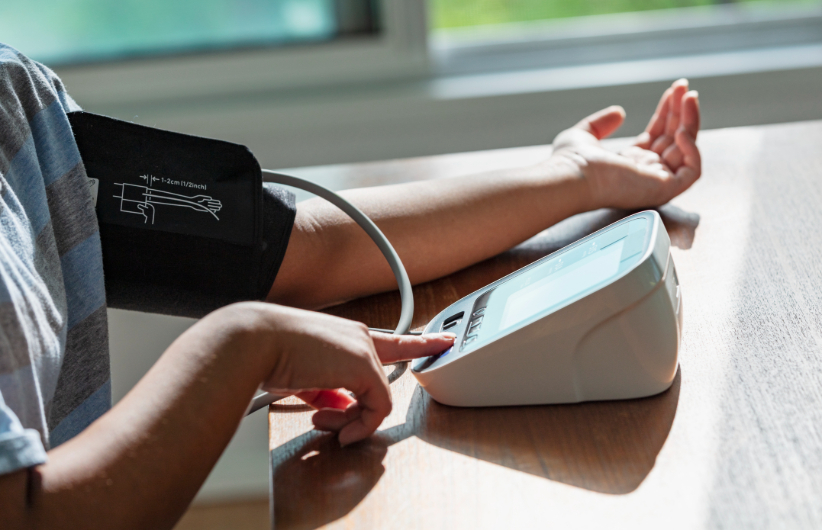How to Find the Right At-Home Blood Pressure Monitor

September 03, 2019
If you’ve been diagnosed with hypertension, or high blood pressure, you know it’s a condition you can’t take lightly. If not closely monitored, high blood pressure can result in a wide variety of dangerous health conditions, like blood clots, kidney failure and stroke.
“Fortunately, by keeping track of your blood pressure numbers, you can prevent getting any of these conditions,” says Paul Marquette, M.D., a board-certified family medicine physician. “And an at-home blood pressure monitor is a simple way to achieve this goal.”
With your own monitor you don’t have to wait until your regularly scheduled doctor visits to find out your blood pressure readings. Home blood pressure monitors come in all shapes and sizes, and navigating the market to find the perfect device can be daunting at first.
“With advice from your doctor, you will be better able to find a blood pressure monitor that will give you important—and accurate—readings to help keep your hypertension in check,” says Aristotelis Vlahos, M.D., a board-certified cardiologist.
So what are the proper steps to finding the right blood pressure monitor for you? Jason Sayanlar, M.D., a board-certified cardiologist, lays out elements you should look for when shopping for a device.
Style of monitor.
According to the American Heart Association, automatic (non-pump) cuff-style bicep monitors are recommended when you are taking your blood pressure at home. There are several other models that you may see while shopping in pharmacies or online, but Dr. Sayanlar says to skip them.
“Using a finger or wrist blood pressure monitor may seem more comfortable, but these styles tend to give less-than-accurate readings,” he says. Relaying inaccurate readings to your doctor may result in confusion on what the best treatment options are.
Safety and accuracy approvals.
A good home blood pressure monitor will have the seal of approval from a variety of unaffiliated, third-party groups, ensuring that the device is safe and accurate enough for you to rely on at home. The Association for the Advancement of Medical Instrumentation conducts research on the efficacy of medical equipment. Check the packaging to see who has approved the device before buying and using it.
Cuff size.
Before purchasing a blood pressure monitor, measure your bicep to ensure that the cuff will fit properly around your arm. Everyone is different, and adults with larger- or smaller-than-normal arms may have to look for a monitor with proper cuff size. Children may also need a different arm band. Check the packaging for sizing information.
Once you make your choice, Dr. Marquette encourages patients to bring the blood pressure monitor to their next scheduled check-up. “To make sure the monitor is calibrated correctly, you can bring in your monitor to your doctor’s office and compare the results to the numbers from the device in the office,” he says. “You should also keep a detailed log of the numbers recorded with your home blood pressure monitor to show your doctor when you go back in for visits.” This can help your doctor have a better idea of your day-to-day fluctuations and devise a proper plan for treating your hypertension.
Next Steps & Resources:
Meet our sources: Paul Marquette, M.D., Jason Sayanlar, M.D. & Aristotelis Vlahos, M.D.
To make an appointment with a doctor near you, call 800-822-8905 or visit our website.
The material provided through HealthU is intended to be used as general information only and should not replace the advice of your physician. Always consult your physician for individual care.






